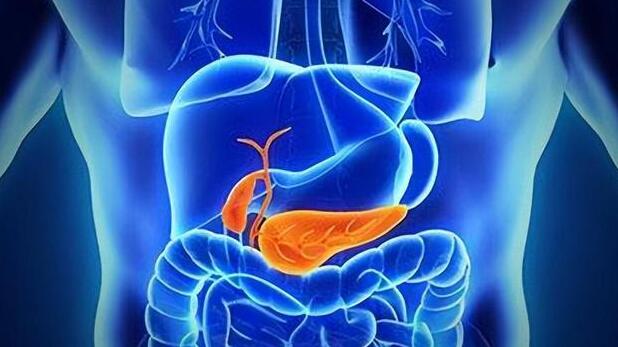The journey to weight loss is one that many people embark upon with the desire to find a path that is both healthy and effective. A key element in achieving this goal may lie in understanding and adjusting one’s basal metabolic rate (BMR).
The BMR represents the minimum level of energy expenditure required by the body to maintain vital life functions—such as breathing, blood circulation, cellular production, nutrient absorption and processing, and body temperature regulation—while at rest (typically in the early morning after a 12 to 18-hour fast and completely motionless but conscious).
In simpler terms, even if you were to spend the day doing absolutely nothing but lying down, your body would still burn a certain number of calories to keep these physiological processes running. This figure varies from person to person, influenced by factors such as gender, age, weight, height, genetics, and thyroid hormone levels.
Knowing your BMR is instrumental in calculating your total daily energy expenditure, which includes calorie burn from daily activities and exercises, particularly for those aiming to control their weight. By understanding your BMR, you can better plan your diet and activity levels to achieve weight loss or gain goals.
So, what is the relationship between BMR and weight loss? Put simply, BMR determines how many calories we can burn each day. If we consume more calories than we burn, the excess is stored as fat, leading to weight gain. Conversely, if our calorie intake falls below our BMR, our body begins to burn stored fat, facilitating weight loss.
How exactly do we calculate BMR?
Calculating BMR typically relies on specific mathematical formulas, with the Harris-Benedict equation and Mifflin-St Jeor equation being the most commonly used. These equations take into account factors such as gender, age, weight, and height. Here are examples of the two popular methods:
Harris-Benedict equation:
For men: BMR = 88.362 + (13.397 x weight in kg) + (4.799 x height in cm) – (5.677 x age)
For women: BMR = 447.593 + (9.247 x weight in kg) + (3.098 x height in cm) – (4.330 x age)
Mifflin-St Jeor equation:
For men: BMR = (10 x weight in kg) + (6.25 x height in cm) – (5 x age) + 5
For women: BMR = (10 x weight in kg) + (6.25 x height in cm) – (5 x age) – 161
To use these formulas, you need to know your exact weight (in kilograms), height (in centimeters), and age. Plug these figures into the equations above to get an estimated BMR.
These calculations provide only estimates; actual BMR can be affected by individual metabolic rates, muscle mass, health status, genetics, and hormones. For a more precise measurement, professional tests like indirect calorimetry can be conducted.
What if you have a low BMR?
Increase muscle mass: Muscle tissue burns more energy at rest than fat tissue. Strength training to build muscle mass can raise BMR.
Regular meal times: Avoid skipping meals, which can slow metabolism. Maintaining regular eating habits helps sustain a healthy metabolic rate.
Protein-rich foods: Digesting protein requires more energy than fats or carbs, a process known as the thermic effect of food. Adequate protein intake can slightly elevate your metabolism.
Active lifestyle: Even informal exercise and frequent movement can boost daily energy expenditure.
Avoid crash dieting: Long-term severe calorie restriction can slow metabolism. Sensible weight loss plans should include moderate calorie limits and regular physical activity.
Ensure adequate sleep: Lack of sleep affects metabolism and can lead to weight gain.
Avoid stress: Long-term mental stress impacts metabolism. Find effective stress relievers like meditation, deep breathing exercises, or leisurely walks.
High-intensity interval training (HIIT): HIIT has been shown to increase metabolism, with a phenomenon called “excess post-exercise oxygen consumption” (EPOC) continuing to burn calories hours after the workout.
Tea or coffee: Caffeine can temporarily boost metabolism but should be consumed moderately.
Check for medical issues: Health problems like hypothyroidism can lower metabolism and cause weight gain. Consult a doctor if such issues are suspected.
We can adjust our BMR to enhance our body’s capacity to burn calories, leading to healthy and effective weight loss. However, since each person’s body condition and weight loss needs differ, it’s best to consult professionals when devising a weight loss plan to ensure scientific and safe progress.
Misconceptions to Avoid in Weight Loss
Overlooking sleep quality: Insufficient sleep reduces metabolism and may increase appetite, leading to weight gain.
Extreme dieting: Excessive calorie restriction leads to muscle loss, which in turn lowers BMR, creating a vicious cycle.
Monotonous exercise: Relying solely on aerobic or anaerobic exercises is not ideal; a diverse workout regimen provides more comprehensive stimulation for healthy weight loss.
Weight loss is not an overnight achievement but requires scientific methods and persistent effort. Understanding and applying knowledge of BMR can help us reduce fat healthily without compromising our well-being while pursuing our ideal weight.










